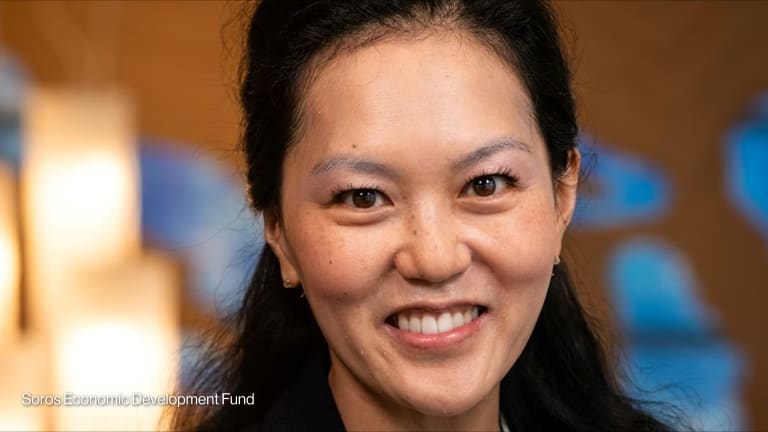
Right now, there are budding entrepreneurs and innovators in developing countries with ideas that could help lift their communities out of poverty, improve health and education outcomes, and create sustainable economic development. They may be focused on how to raise smaller holder farmers’ income, or creating a ride-hailing app that ensures a safe taxi ride, or developing software that makes it easier for business to comply with local tax regulations.
But, too often, enterprising individuals and start-ups lack access to the capital needed to develop their concepts further or to take them to scale. Mobilizing capital to support these innovations and achieve the broader Sustainable Development Goals is a critical challenge for the international development community in the next decade. That is why donors everywhere need to examine their existing financial instruments and approaches to determine whether they are properly positioned and resourced to support this movement.
The United States, as the world’s largest donor, is no exception. It is also stepping up to the plate. The proposed new development finance institution included in the President’s FY2019 budget request and legislation introduced in the House and Senate is potentially game-changing for U.S. development finance and would help better mobilize private capital for development outcomes.
The legislation and the administration’s proposal will consolidate several disparate development finance instruments, including the Overseas Private Investment Corporation (OPIC), into one agency with updated authorities creating a U.S. international development finance corporation (IDFC). These authorities include the ability to make equity investments, first loss and currency risk guarantees, and grants that help unlock larger investments. It also establishes a preference for the IDFC to invest in low-income and lower-middle income countries.
The legislation also raises the IDFC’s funding cap to $60 billion—a significant increase from OPIC’s current level of $29 billion, $23 billion of which is committed. These provisions should significantly enhance the IDFC’s ability to mitigate risk and facilitate greater investment toward countries that struggle to attract needed capital. The inclusion of first loss guarantees and grant authority will significantly enhance its ability to support entrepreneurs and innovators.
There are legitimate criticisms of DFIs that should be addressed while Congress considers the administration’s proposal and legislation. Some question whether there is a need at all for a DFI, arguing that the government should not be in the business of providing financing that the private sector is unwilling to engage in.
Yet, such critiques ignores the very real need that exists in these countries. Colin Powell famously called capital a coward and in many instances that is true: private capital frequently avoids the risk associated with developing countries. There is also a need to ensure that the IDFC supports genuine development. As recent portfolio reviews of OPIC, IFC, and other DFIs have illustrated, DFIs remain too focused on safer investments in upper middle-income countries where they have limited development impact. It is welcome news to see that the legislation focuses the IDFC on low-income and lower-middle income countries. This may mean lower short-term returns, but it will create greater impact over time by focusing on where the DFC can make the most difference by helping correct market failures.
So-called “Impact investors” prioritize investments for social impact, providing increased support for companies and entrepreneurs in the early stages of their life cycles to grow local economies in the developing world. The Global Innovation Fund (GIF) and other impact investors have found that there is a “pioneer” gap, or missing middle, of early stage financing for entrepreneurs and innovators. Businesses and individuals find it difficult to tap local capital markets where interest rates are high and foreign investors frequently fear the risk profile associated with these markets. By adopting a patient capital approach and by placing greater emphasis on impact, GIF and others have found that this opportunity can pay off.
As currently conceived, however, DFIs such as IFC and OPIC find it difficult to go “down-market” to provide support for smaller sized deals or those that promise a smaller return on investment. Those working in the impact investing space have shown that there is demand here, and the IDFC should support these activities. Importantly, the administration’s DFI proposal and the legislation offer resources that can support impact investors and help close the financing gap. This will not be the IDFC’s sole focus, but it is an important signal that the authors of the legislation take seriously the need for ensuring development impact.
Through the IDFC, the United States should rely on the strength of this country’s free enterprise approach, support for innovation, and a vibrant business sector to mobilize private capital for development.
While developing countries need large amounts of financing for infrastructure, entrepreneurs and innovators also need access to capital. This is America’s comparative advantage and it is one that the IDFC should support; the ideas and innovators exist, marrying them with capital remains the challenge.
Eighteen months ago, it seemed impossible to imagine that the House and Senate would introduce legislation to create a consolidated, enhanced U.S. international development finance corporation. At a time of uncertainty about the United States’ role as an international development leader, the IDFC is a glimmer of hope that deserves the international development community’s support.
Regardless of the administration, this proposed legislation will help the United States achieve worthy development goals. A new U.S. development finance corporation working with impact investors and others will fully support innovators, entrepreneurs, and communities in developing countries.








